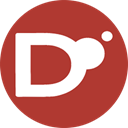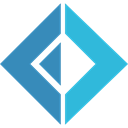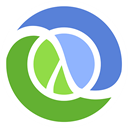Unlocking New Possibilities: The Best OCaml Alternatives for Your Next Project
OCaml, an industrial-strength programming language, is celebrated for its powerful combination of functional, imperative, and object-oriented paradigms. Its robust type system and focus on correctness make it a favorite for critical applications. However, developers often seek alternatives for various reasons, including specific project requirements, community size, ecosystem tools, or a desire for different performance characteristics. This article explores the top OCaml alternatives that offer unique advantages for diverse programming needs.
Top OCaml Alternatives
If you're looking to explore languages that offer similar capabilities or provide distinct advantages over OCaml, this curated list of alternatives will guide you toward your ideal programming tool.

C (programming language)
C is a general-purpose, widely used programming language known for its low-level memory management and direct hardware access. It's a strong OCaml alternative for systems programming, kernel-level development, and scenarios where maximum performance and control are paramount. C is Free, Open Source, and available across almost all platforms including Mac, Windows, Linux, Android, and iPhone, featuring a compiled language and inline assembly.

C++
C++ is a powerful, multi-paradigm language, offering a blend of high-level abstractions and low-level control, similar to OCaml's versatility but with a stronger emphasis on object-oriented programming. It's an excellent OCaml alternative for performance-critical applications, game development, and complex systems. C++ is Free, Open Source, and available on Mac, Windows, Linux, and BSD, featuring a compiled language and robust object-oriented capabilities.

Rust
Rust is a systems programming language that prioritizes safety, speed, and concurrency. Its strong type system and ownership model provide memory safety without a garbage collector, making it a compelling OCaml alternative for highly reliable and performant applications where OCaml's garbage collection might be a concern. Rust is Free, Open Source, and available on Mac, Windows, Linux, and BSD, offering features like typesafety, a built-in package manager, and pattern matching.

Haskell
Haskell is a purely functional programming language, known for its elegant syntax and powerful type system, which aligns with OCaml's functional strengths but pushes it further into pure functional paradigms. It's a strong OCaml alternative for research, academic projects, and applications benefiting from strong guarantees about correctness and concurrency. Haskell is Free, Open Source, and compatible with Mac, Windows, Linux, and BSD, featuring static typing and tail call optimization.

D (Programming Language)
The D programming language combines the efficiency and control of C with the safety and productivity of modern languages, offering a multiparadigm approach similar to OCaml but with broader system-level capabilities. It's an excellent OCaml alternative for projects requiring a blend of performance, strong typing, and versatile programming styles. D is Free, Open Source, and available on Mac, Windows, Linux, and BSD, supporting functional and object-oriented programming with contract programming.

Scala
Scala is a powerful multi-paradigm language running on the Java Virtual Machine (JVM), blending object-oriented and functional programming. Its strong type system and concurrency features make it a compelling OCaml alternative, especially for large-scale enterprise applications leveraging the JVM ecosystem. Scala is Free, Open Source, and compatible with Mac, Windows, Linux, and BSD, offering both compiled and functional programming capabilities.

F# (programming language)
F# is a functional-first programming language for .NET, offering concise and expressive code for complex problems. Its integration with the .NET ecosystem makes it a strong OCaml alternative for developers working within that environment, providing similar functional programming benefits with object-oriented capabilities. F# is Free, Open Source, and available on Mac, Windows, Linux, and BSD, supporting functional, object-oriented, and scripting paradigms.

Clojure
Clojure is a dynamic, general-purpose programming language targeting the Java Virtual Machine (JVM), known for its emphasis on functional programming and immutability. As a Lisp dialect, it offers a highly expressive and flexible environment, making it an intriguing OCaml alternative for concurrent and data-intensive applications. Clojure is Free, Open Source, and runs on Mac, Windows, Linux, and BSD, primarily focused on functional programming.

Erlang
Erlang is a battle-tested language designed for building massively scalable, concurrent, soft real-time systems with high availability, making it an excellent OCaml alternative for telecommunications, message brokers, and other distributed systems. Its robust fault tolerance and concurrent model offer unique advantages. Erlang is Free, Open Source, and supported on Mac, Windows, Linux, and BSD, featuring distributed computing and functional programming.

Elixir
Elixir is a dynamic, functional language built on the Erlang VM, leveraging its strengths for building scalable and maintainable applications. It offers a more modern syntax and powerful tooling, making it a highly appealing OCaml alternative for web development, distributed systems, and real-time applications. Elixir is Free, Open Source, and available on Mac, Windows, Linux, BSD, and FreeBSD, primarily focusing on functional programming.
Each of these OCaml alternatives presents a unique set of strengths, from low-level control to highly concurrent functional paradigms. Your choice will ultimately depend on your project's specific requirements, your team's familiarity with the ecosystem, and the desired balance of performance, safety, and productivity. Explore these options to find the best fit for your next programming endeavor.